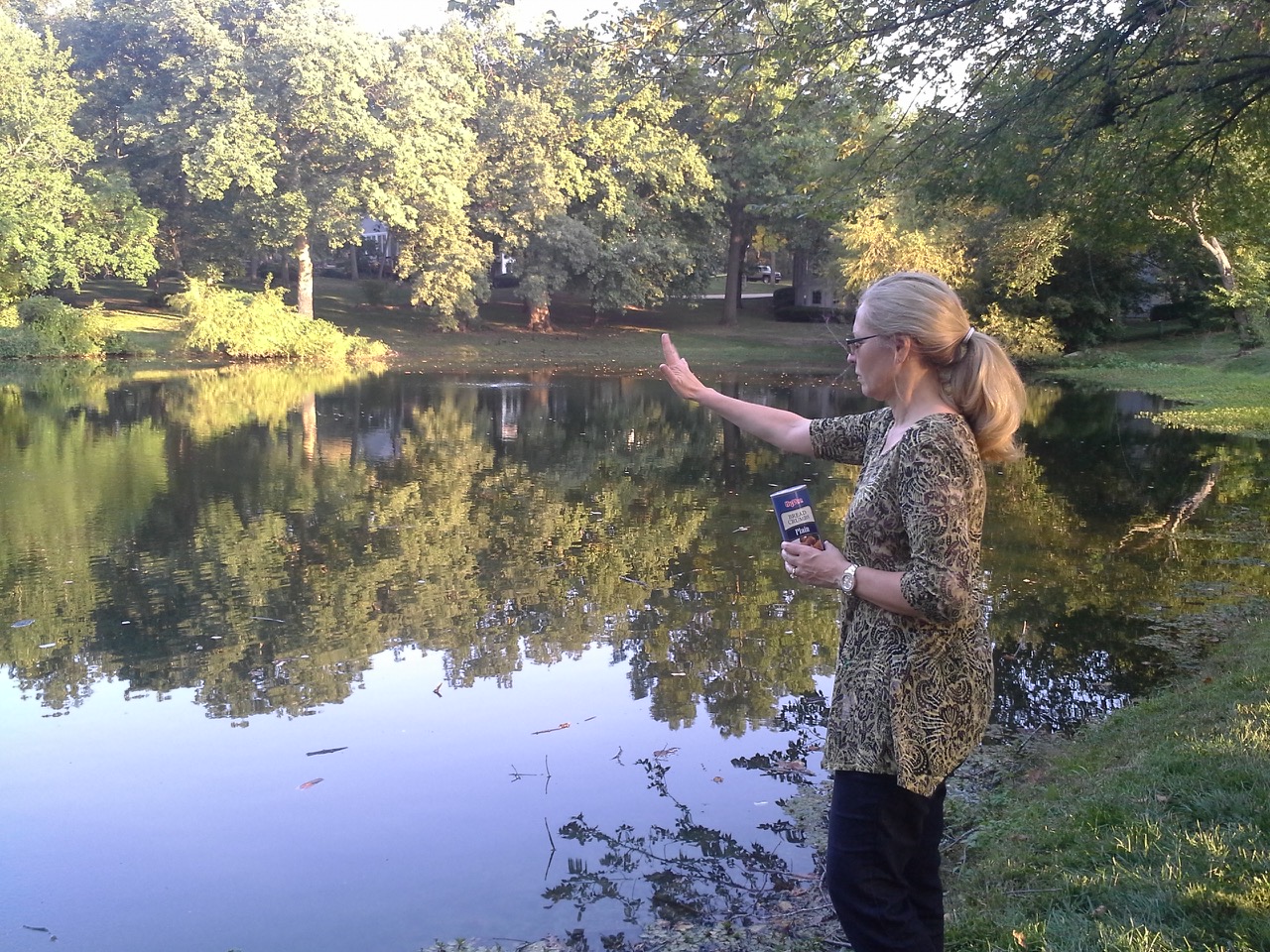Tashlich Reimagined
An outdoor high holiday ritual, figuratively casting away sins in the form of breadcrumbs, gets makeover during pandemic.
Like the moving waters where sins are cast, this year’s Tashlich service remains fluid. There is no one way area synagogues are conducting the service in which sins are figurately transferred into breadcrumbs and carried away.
The ritual is based upon a verse from the prophet Micah 7:18-20: G-d “will take us back in love. … You will hurl all our sins into the depths of the sea.”
In spite of COVID-19, creative ways to fulfill the ritual of casting off sins have evolved, while remaining meaningful, according to many local sources. Non-traditional methods of observance cited include blowing soap bubbles that float away outdoors or saying blessings while standing by a home bathtub faucet’s running water.

Of course, small groups and individuals can still conduct Tashlich more traditionally at a stream, brook or river as long as they follow health guidelines to ensure safety. When it comes down to it, the concept of pikuach nefesh, protecting human life, overrides almost any other Jewish law or tradition, according to Rabbi Joshua Lesser of Congregation Bet Haverim.
“This year we should feel like we have permission to refrain from the rituals that are not safe and allows us to quarantine, shelter in place or socially distance ourselves appropriately.” Tashlich falls into the category of rituals that Jews can carry out this year, even if with variations.
Lesser points out that if a person, a family or a pod of friends who were quarantining together want to locate a flowing body of water, they can do Tashlich. One does not need a rabbi to conduct the ritual and a minyan is not required. He said, “If one is worried for their health by leaving their home and they are not halachic, observant of Jewish law, they may choose to engage in the ritual at home, where people can use their tub or their sink.” Even a hose can work as a source of moving water. He stated that “what is most important is how the ritual invites us to reflect on how we might practice teshuvah, repentence of our misdeeds. Therefore, he believes that “modifying the ritual could be preferable than not doing it at all.”

Using a jar of bubble soap with a plastic wand to blow bubbles floating into the air is Lesser’s newest Tashlich idea. He said, “I think many of us have thought of bubbles as a way to get children to think about letting go and casting off.” Similar to throwing crumbs in moving water, the bubbles instead travel through air currents. CBH Music Director Gayanne Geurin wrote a blessing titled “Tashlich on the Wind.” She said the words recited when blowing bubbles can be enjoyed by all ages, including adults.
May the fragile brief moment these bubbles, born from my life breath and lightness of being, float and pop, be a reminder that all things change and can change.

The senior rabbi of Temple Beth Tikvah, Rabbi Alexandria Shuval-Weiner, feels some form of a casting off ritual will be desired. She believes many will be praying the pandemic will end as a way to cast many aspects of the year away, and all the associated regrets. She told the AJT that it’s important to remember about personal accountability and growth, to think of ways to improve. “Tashlich invites us to exit the doors and re-enter the world — to reconnect with nature, to see the beauty and magnificence of G-d’s creation, bringing a renewed sense of awe and wonderment.”
Taking the place of TBT’s well attended group Tashlich ceremony held by a river’s edge, the synagogue this year is sending Holy Day Bags filled with wildfowl food and a Do It Yourself Tashlich service to its members. People will have what they need to partake in the ritual individually or in small cohorts of family and friends. The rabbi noted that many communities have moved to wild birdseed or fish food to be more environmentally focused.
Similar to CBH, Shuval-Weiner, said, ”with young children, we use bubbles, encouraging them to say what they want to cast off or let go, and when the bubbles float away or pop, they have a fresh start.” She suggested that for very young children who may not be safe at the water’s edge, one can use bath paints to write words or draw pictures of what they want to release and then wash it all away.
How are other metro Atlanta synagogues carrying out Tashlich this year during the pandemic?
Congregation Beth Jacob’s outreach coordinator Rabbi Yitzchok Werbin said that “BJ congregants can conduct Tashlich as in previous years, standing next to a source of water in the Toco Hills neighborhood.”
He pointed out that conducting Tashlich extends to Hoshana Rabbah, the seventh day of Sukkot, extending more flexibility for when to carry out the ritual. It involves standing by water and reciting certain passages from the machzor (high holiday prayer book), a tradition that dates back to pre-Medieval times. However, during COVID, if a family joins other Beth Jacob members or neighbors during Tashlich, “they should keep all proper social distancing and wear masks,” Werbin stressed.
Jackie Nix, director of Youth & Family Engagement at Ahavath Achim Synagogue, said AA distributes HomeBeis Holiday Boxes with supplies to use for high holiday experiences in member’s homes, including Tashlich. The boxes are geared towards families and children and can be delivered to a home or picked up at AA.
Instead of Congregation Etz Chaim and nearby Temple Kol Emeth combining their Tashlich services as they’ve done in previous years, Rabbi Daniel Dorsch of Etz Chaim told the AJT that the synagogue will hold four different Tashlich sites throughout the East Cobb area, where the shofar will also be sounded with appropriate blessings.
“These sites will be limited to the first 50 members to sign up in accordance with the CDC’s guidelines prohibiting large gatherings. All participants will also wear masks and be socially distanced. We look forward to resuming our partnership with Temple Kol Emeth in the future.”
To learn more about Tashlich observances this year, check synagogue high holiday calendars of events online or refer to the resources below.
Resources:
www.ritualwell.org/search-results?Q=Tashlich+ritual
www.congregationbethaverim.org/high-holy-day-diy-guides.html
www.18doors.org/tashlich/
“Tashlich and the 13 Attributes: A new translation with commentary, authorized Talmudic, Midrashic and rabbinic sources” by Avroham Chaim Feuer and Nossom Scherman, https://www.artscroll.com/Products/TASP.html ì




comments